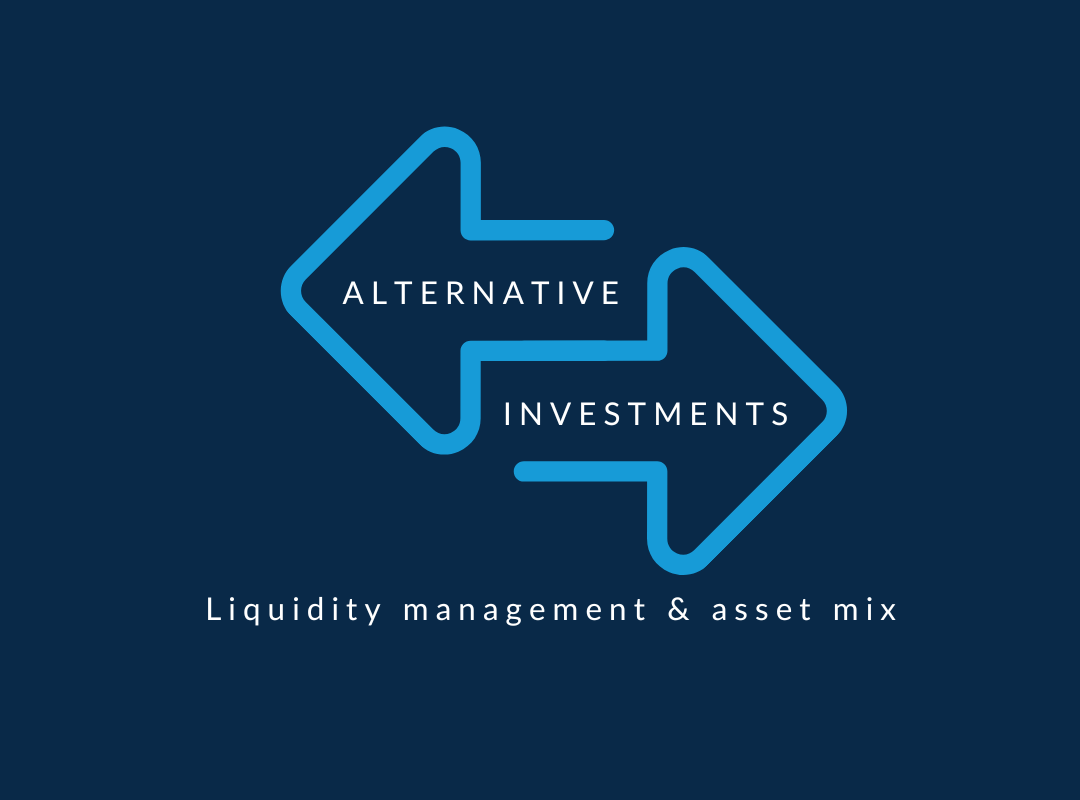Interest in alternative investments has surged among the ultra-high-net-worth over the last ten years, partly due to widespread adoption and decreased barriers to entry. While these investments offer a fantastic way to diversify portfolios and boost returns, they demand sophisticated liquidity management and careful investment mix considerations. This article focuses on navigating alternative investments, liquidity management, and asset allocation.
We have observed that investors who do not employ effective alternative investment management often subject themselves to risks. Those who do not allocate enough to alternative investments may miss out on 5-10 years of opportunities, which leads to potential underperformance.
On the other hand, those who allocate too much may find themselves in a liquidity crisis, potentially losing control of their financial stability. Striking the right balance, or the “Goldilocks” zone, is crucial to alternative investment management and varies per investor. This balance can only be achieved through careful planning and understanding of liquidity management.
Understanding Liquidity in Alternative Investments
Liquidity refers to the ability to convert assets into cash without affecting their price. In alternative investments such as private equity, real estate, and hedge funds, higher returns can often mean lower liquidity.
Managing liquidity is critical to meet potential capital calls and cash flow needs. This is especially true during times of market stress when portfolio values can be volatile, and sources of liquidity are fluctuating.
Strategies for Effective Liquidity Management in Alternative Investments
Liquidity management involves several key strategies.
The first step is for investors to examine their portfolios and understand their portfolio liquidity profiles. This involves subjecting the portfolio to a stress test, such as the 2008 financial crisis. Doing so helps investors understand how different parts of their portfolios would react and what the resulting liquidity profile might look like.
Next, determine what an accelerated capital call schedule might look like for existing commitments. Significant market downturns typically create investment opportunities, and private equity funds may call capital from their LPs quicker to take advantage of them.
At the same time, distributions from commitments can decline during significant market downturns. Private equity firms may decide the timing is unfavorable to exit their portfolio companies, given lower investment demand and valuations.
With that in mind, factor in your typical portfolio cash flow requirements (spending, taxes, etc.) and forecast this over your estimate of how long it might take markets to recover.
Should the stress test reveal that your portfolio liquidity is insufficient, you should take action. This may involve reevaluating your asset allocation, pacing model, or securing lines of credit in advance to bolster liquidity.
Planning for liquidity in extreme market conditions is not merely a defensive maneuver. It also positions investors to take advantage of attractive opportunities that arise during market downturns when alternative investments as well as other investments are selling at significant discounts.
Crafting the Right Mix of Alternative Investments
The composition of an investor’s portfolio is important in alternative investment management. Diversifying across asset classes can reduce liquidity risks. For instance, combining assets with varying degrees of liquidity—from liquid publicly traded securities to more illiquid private investments— and lowering overall correlations can create a more balanced portfolio capable of weathering market fluctuations.
Items to consider when selecting your alternative investment asset allocation
- Evaluating Portfolio Cash Flow Needs: Analyze the liquidity needs and cash flow requirements of your portfolio. What percentage of your portfolio do you spend annually? Spending 10% per year is significantly different from spending 3% percent. Consider if you have separate income sources and the implications of losing them.
- Portfolio Pacing and Vintage Diversification: Scaling into alternative investments over multiple years is crucial to avoid over-commitment in a poor vintage year. Even skilled managers can encounter less successful vintage years. Have an annual pacing plan to determine new fund commitments and how they are sized. This part of alternative investment management also helps establish a smoother level of capital calls and distributions over the years.
- Strategy: Decide on the investment strategy that aligns with your financial goals and risk tolerance. There are many alternative investment strategies such as but not limited to: capital preservation, income, or capital appreciation.
- Liquidity Profile: Different types of alternative investments have different liquidity profiles. For example, a venture fund could take 10+ years before returning all capital, while a hedge fund might offer quarterly liquidity. Read the fine print and understand the liquidity provisions of each fund.
- Manager Selectivity and Diligence: Evaluate the track record and expertise of managers through proper diligence. Aim for top quartile performers and understand how they have performed in down market cycles. Consider their historical capital call and distribution schedules. Avoid making all investments with the same manager and diversify manager risk across several firms instead.
Aligning these factors with the investor’s overall financial goals and cash flow requirements ensures cohesive alternative investment strategies. Prepare in advance. As the saying goes, “It’s better to have it and not need it than to need it and not have it.” Proactively managing liquidity, through regular stress testing and strategic portfolio adjustments, empowers investors to face market downturns with confidence.
In conclusion, alternative investments can enhance returns for those willing to navigate its complexities. Liquidity management requires proactive and intentional planning. Crafting the optimal mix of alternative investments is about balancing risk and reward along with ensuring resilience in a dynamic market landscape.
At Keystone Global Partners, our team of experts is experienced in navigating the complex world of alternative investments. We’ve determined how to best design tailored solutions that align with our clients’ financial goals and risk tolerance. Contact us today to learn more about our wealth management service and how we can help you successfully build and maintain high-quality alternative investment strategies.
FAQs
What Are Alternative Investments?
Alternative investments are assets/investments that fall outside the traditional categories of stocks, bonds, and cash. A few examples include private equity, hedge funds, real estate, commodities, and infrastructure. Alternative investments typically have a lower level of liquidity than traditional investments but may have higher risk-adjusted returns and diversification benefits.
Are Alternative Investments Worth It?
Alternative investments can be worth it for investors who are willing to take on the complexities and risks associated with them. They can offer higher returns than traditional investments, provide diversification benefits, and help protect against market volatility.
However, they may not be suitable for all investors and should be carefully evaluated in relation to an individual’s financial goals and risk tolerance. It is important to work with a trusted advisor who can guide you through the process of incorporating alternative investments into your overall investment strategy.
With careful planning and a thorough understanding of liquidity management principles, alternative investment strategies have the potential to enhance returns and build long-term wealth. Consider consulting with a team of experts, like Keystone Global Partners, to assist you. Our alternative investment management service can create tailored plans that align with your financial goals and risk tolerance.
Do Alternative Investments Have a High Return?
Alternative investments can potentially yield a higher return than traditional investments. This is because they often involve more risk and longer lock-up periods or less liquidity. It’s crucial to work with a team that has the expertise and experience in building alternative investment portfolios. However, it is important to note that high returns are not guaranteed and can vary depending on specific alternative investment strategies, market conditions, fund vintages, and individual performance of managers. Investors should carefully evaluate their own financial goals and risk tolerance before incorporating alternative investments into their portfolios.
Who Should Invest in Alternative Investments?
Alternative investments may be suitable for investors with higher risk tolerances and longer investment horizons. They can also benefit individuals looking to diversify their portfolios, hedge against market downturns, and potentially generate higher returns.
It’s crucial to carefully evaluate one’s financial goals and risk tolerance before incorporating alternative investments into an investment strategy. Working with a team of experts can help ensure that alternative investments are properly selected and incorporated into an overall portfolio that aligns with an individual’s specific needs.


